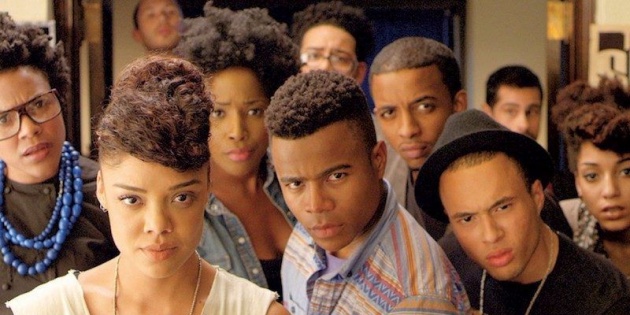
Let’s talk racism.
I’m black, and I’m a woman.
I’m a lot of other things, but I live with those two traits with every day.
They aren’t characteristics I can hide or shy away from.
racism 101
Since this is my first time really delving into a nitty gritty topic, I want to provide a bit of a primer and give you a set of definitions to help you in the future.
I’m going to try to go over these definitions without anyone getting defensive because that’s the last thing I want.
However, if you find yourself getting defensive about anything you read here, ask yourself why.
There’s probably a compelling reason.
OK, so this is a very complicated subject.
We’ll start slow.
A common misconception about racism is that people think it’s comprised of conscious hate, and that’s all.
That’s absolutely not true.
If you open a dictionary, the definition that typically falls under “racism” is this:
A belief or doctrine that inherent differences among the various human racial groups determine cultural or individual achievement, usually involving the idea that one’s own race is superior and has the right to dominate others or that a particular racial group is inferior to the others.
And I’m sure you’re familiar with that definition.
Guess what?
Racism is a lot more complicated than that.
Racism is systemic. Racism is institutional.
Racism is not believing you are better than another for some reason. That’s actually prejudice.
So then, what is racism?
Racism is prejudice plus power.
I’m not talking about electricity; I’m talking about influence, status and authority.
prejudice plus power
In the United States, racial policies and dynamics are specific by country.
Laws, restrictions and other norms in our society have been created by the majority in order to create these prejudices against another, differing group.
These things can include:
– Slavery
– Wage gaps
– White flight
– Workplace and employment discrimination
– Police brutality
– Stereotypes in entertainment
– Voting laws
The above are just a few examples of how black people have been perpetuated into remaining in an oppressive state.
There are many other definitions and concepts that make up this giant, tangled web.
For example, with “white privilege,” white people benefit from these societal structures simply for existing in them.
Of course, some people don’t consciously choose to benefit, but that doesn’t mean there isn’t a type of advantage for them.
You may not hate someone for the color of his or her skin, but you still benefit from the systems that have been set up.
Yes, I know that slavery is no longer an institution in America.
Remember that’s not what racism is.
I’m not saying that as a white person, you or someone you know grew up with everything handed to him or her.
Being privileged does not mean someone had an easy life.
That is not how privilege is defined in this particular instance.
So, before you throw up a stop sign and start dismissing these words, please remember this is a matter of perspective.
In the conversation about race, I’m talking about the intrinsic privilege of being white.
The thing about privilege is that it can make people blind to struggles they are not aware of.
privilege
If a person of color is prejudiced toward you because you’re white, it will probably not hurt your overall quality of life because society is not built that way.
Being white will also probably not negatively affect a person’s ability to thrive in society.
Prejudice exists in all of us.
However, for racism to exist, those power structures must be a thriving component.
The main issue about racism is how these laws and ideals from the past are still inflicting damage on people today.
Racism illustrates how laws and ideals have cemented a structure that is part of our nation’s history.
Just take a look at Dr. Jane Elliott’s prejudice experiment to see what I’m talking about.



